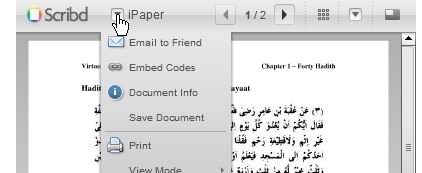
"Hadhrat 'Aa'ishah (Radhiyallaho anha) narrates that Rasulullah (Sallallaho alaihe wasallam) once said. "One who is well versed in the Quran will be in the company of those angels who are scribes, noble and righteous; and one who falters in reading the Quran, and has to exert hard for learning, gets double the reward." (Bukhari, Muslim, Abu Daud, Tirmidzi, Nasa’i, Ibn Majah)
"One who is well versed in the Quran" means one who is proficient in memorizing as well as in reciting it. It is highly praiseworthy if one masters its meaning and significance as well. "To be with the angels" means that, like the angels who transferred the Quran from the. Lowhul Mahfooz' (Protected Tablet in the Heavens), he also conveys it to others through its recitation and, therefore, both have the same occupation; or that he will join the company of such angels on the Day of Judgement. One who falters will get double reward - one for his reading and the other for his effort in reading the Quran, in spite of faltering again and again. It does not mean that his reward will exceed that of a well-versed person. The reward that is mentioned for a well-versed person is far greater. so much so that he will be in the company of special angels. 'The explanation is that the labour involved in faltering and the difficulties in the reading of the Quran carry an independent reward. As such, reading of the Quran should not be given up, even though faltering may be an excuse.
Mulla 'Ali Qari has reproduced from the riwayat of Tabrani and Baihaqi that one who cannot memorize the Quran well and yet persists in learning it by heart gets double reward. Similarly, one who cherishes a longing for memorizing it and does not possess the abilitv to do so, but does not give up his efforts. will be reckoned by Almighty Allah among the huffaaz! (Plural of hafiz - one who has learnt the whole Quran by heart) on the Day of Resurrection.
For easy printing and sharing...
Virtues of Quran Ch1 Hadith 4



